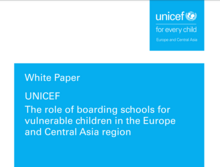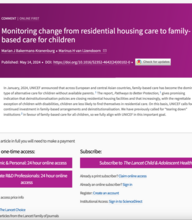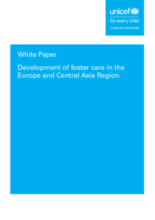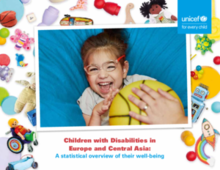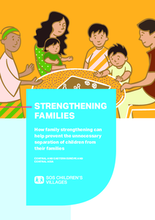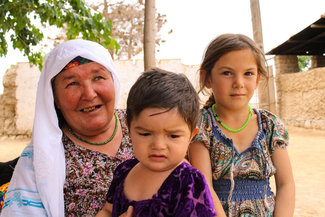

Displaying 11 - 20 of 114
The Criminal Code is being amended to include a new clause - Article 126-1, which introduces liability for family (domestic) violence against children.
This UNICEF paper summarises evidence on the current use and impact of boarding schools in the Europe and Central Asia (ECA) region and draws on wider international evidence. It proposes a typology of boarding schools and considers the drivers for their use, as well as the concerns and challenges related to that use for vulnerable children.
This is a comment on the the report Pathways to Better Protection which gives promising indication that deinstitutionalisation policies are closing residential housing facilities and that increasingly, with the exception of children with disabilities, children are less likely to find themselves in residential care.
The development of foster care in the Europe and Central Asia (ECA) region should be seen in the context of a global movement for child care system reform, framed by the key principles of the United Nations Convention on the Rights of the Child (C
'Long road ahead before ending Europe and Central Asia’s long, painful legacy’ of institutionalisation of children, as new UNICEF report highlights rate of children living in residential care across region is double the global average
This report provides an in-depth analysis of the situation of children in alternative care and in adoption in Europe and Central Asia (ECA) based on available data from TransMonEE, as well as other sources such as MICS, DataCare and the Conference of European Statisticians (CES). It marks the first analysis of data on children in alternative care by the UNICEF ECA Regional Office since the publication of the ‘At home or in a home’ report in 2010, highlighting the developments and challenges in collecting and reporting data on children in alternative care and adoption and summarises recommendations derived from recent data review initiatives.
This report provides critical evidence for decision-makers across countries to use in both policy and programming. The report’s objective is to promote the use of these data to make children with disabilities in Europe and Central Asia more visible, bringing about a fuller understanding of their life experiences.
This document makes the case for the importance of investing in family strengthening in countries across Central and Eastern Europe and Central Asia. It has a particular focus on support for families so that any unnecessary separation of children from their families and placement in alternative care can be prevented.
11.5 months, home-based in Italy with monthly field travel
The article presents the newly collected data on the adoption of childcare deinstitutionalization policy by 15 countries – previously republics of the Soviet Union. Qualitative comparative analysis is employed to explore the role of national-level attributes affecting the timing of policy adoption and the rate of implementation.

